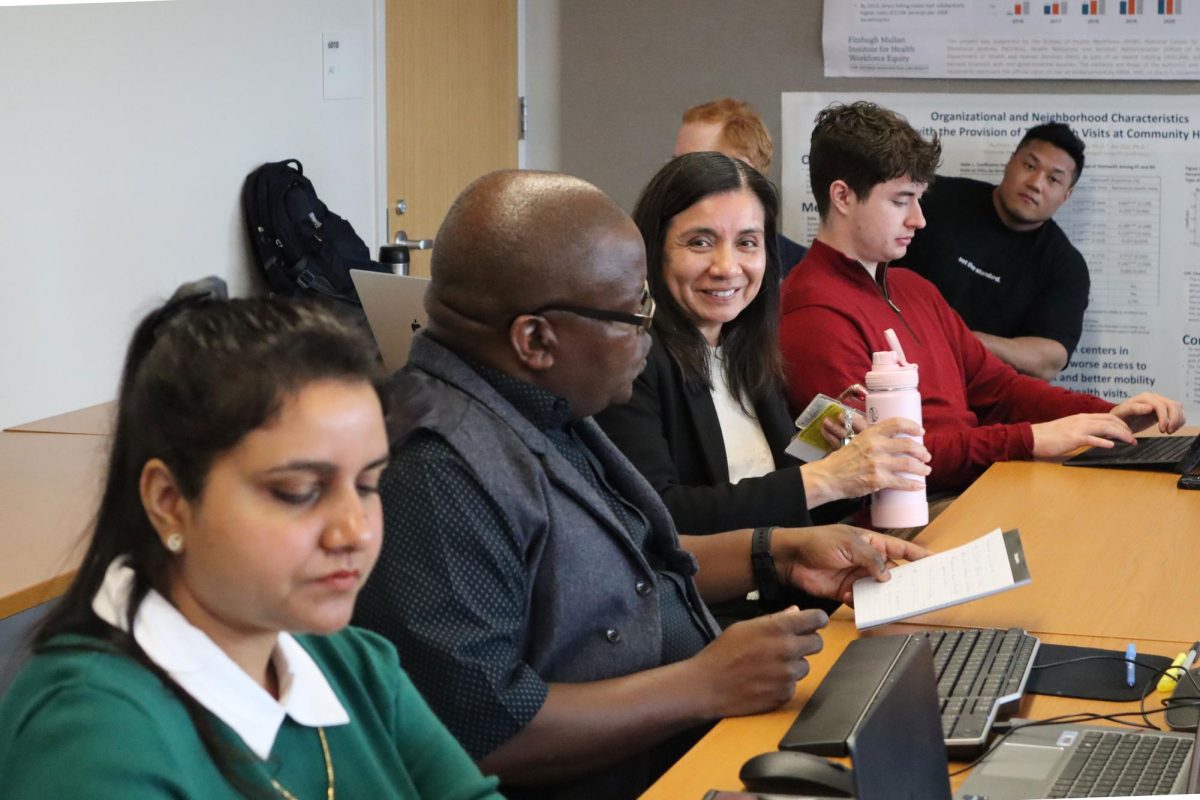The director of epidemiology at GW Hospital discussed how to mitigate the dangers of mpox, previously known as monkeypox, at the Milken Institute School of Public Health on Tuesday.
Maria Elena Ruiz — the director of epidemiology at GW Hospital — sat beside a panel that included Melissa Goldstein, professor of health policy and management, David Diemert, director of the vaccine unit at the School of Medicine & Health Sciences and Paul Ndebele, assistant director of Milken’s office of research excellence. Ruiz discussed the symptoms, which are primarily painful lesions, and mitigation methods, like post exposure vaccines, for the current outbreak of mpox at the event hosted by Milken’s Bioethics Interest Group, a group dedicated to ethical decision making in public health.
Ruiz said mpox can manifest as lesions or skin rashes, often confined to the face, hands and mouth, unlike chickenpox, which spreads more widely across the body. She said while not always widespread, the rashes can be severe, cause discomfort and require long-term recovery.
“The amount of pain that is associated with these lesions will surprise you,” Ruiz said. “The sort of cosmetic and prolonged care that is required even after the infection gets better is quite surprising. I don’t think I’ve seen that with other viral diseases that we take care of.”
Ruiz said due to the risks associated with the virus, like pneumonia or brain infection, patients should isolate to prevent airborne, droplet or physical transmission. She said care for mpox includes a post-exposure vaccine and that an antiviral drug called TPOXX may be recommended.
“If they’re going to be in very close proximity to someone, then maybe also wear a mask,” Ruiz said. “Although the main way to acquire monkeypox is really skin-to-skin contact, we are still mindful of droplet precautions as well.”
Ruiz spoke about vaccines, and said the immunization protocol is centered around administering the smallpox vaccine, which also works on mpox. She said since mpox and smallpox share the same viral family, immunity to one virus provides protection against the other.
Ruiz said the global decline in smallpox vaccination has contributed to the rise in mpox cases.
“The discontinuation of widespread vaccination against smallpox in the 80s is what led to the rapid increase in monkeypox you see in the years after in Africa,” Ruiz said.
Goldstein questioned if getting a smallpox immunization at a young age will guarantee mpox immunity as an adult. Dietmert said those adults who received a smallpox vaccine as children should get another dose in adulthood.
Diemert said during the 2022 outbreak, a small amount of vaccine doses were handed out intradermally due to limited supply of the vaccine, but the number of doses available has since recovered.
“But that’s not a problem anymore,” Diemert said. “There’s enough vaccine for anyone who really wants it to get it.”
Ruiz closed the event with guidance for those who have tested positive for mpox and stressed the importance of testing.
“Get tested,” she said. “If you do have mpox, stay home until all of the scabs have fallen off, and then, you know what I’d do again? Get tested.”





